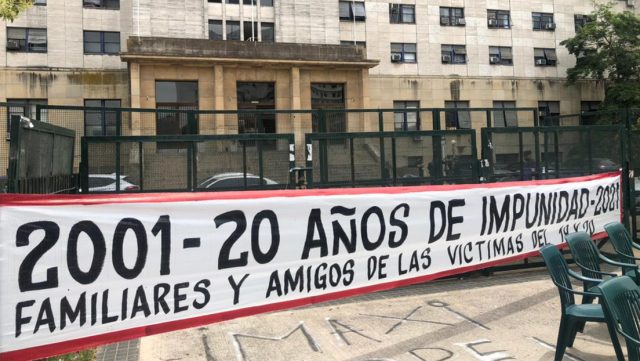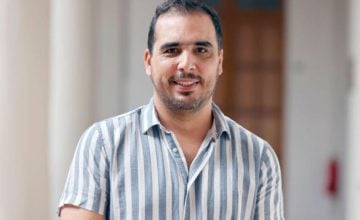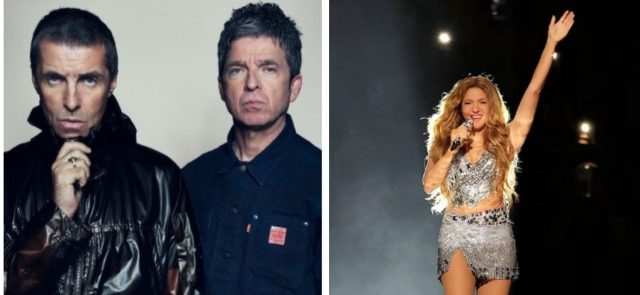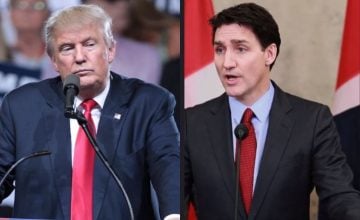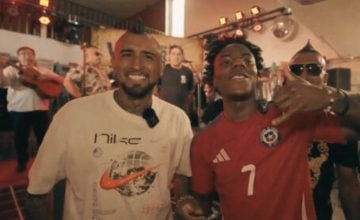Family members and friends of victims of the police repression of December 19 and 20, 2001, demonstrate in front of the federal courts of Comodoro Py, in the City of Buenos Aires, Argentina, almost 20 years after the social outbreak that led to the resignation of the then President, Fernando de la Rúa, in the midst of a crisis that still remains in the memory of the Argentines.
The demonstration is to demand that the Justice carry out the penalties against those responsible for the crimes, including the hierarchical authorities who ordered the operation, since none of the people who were condemned for those events, went to jail.
This case corresponds to the homicides of five citizens in the capital, murdered while the Police tried to clear the Plaza de Mayo. At the national level, it is estimated that almost 40 people died in the context of protests, while the State of Siege was in force, explains journalist Leandro Lutzky in a report for RT.
Those responsible are still free in Argentina
Rodrigo Borda, a lawyer from the Center for Legal and Social Studies (CELS) that represents the families, reviews that after a long judicial course, in 2016 the trial concluded and «important convictions» were achieved. Indeed, sentences of between three and four years had been obtained against senior officials of the security forces. Among them are former Security Secretary Enrique Mathov and former Federal Police Chief Rubén Jorge Santos. However, none have yet been to prison because, amid strenuous delays, the number 1 Chamber of the Federal Court of Cassation continues to review the sentences.
In this regard, Borda points out that in Latin America there are no known punishments for political leaders for repressive acts: “ The Justice system determined that this repression operation was illegal. This seems obvious, but there is no other precedent in the region where this type of responsibility has been determined». Likewise, he regrets that Justice did not continue to go further up the scale of responsibilities: “Former President Fernando de la Rúa died with impunity. That is why today there is a case before the Inter-American Commission on Human Rights [IACHR] denouncing the Argentine State for this omission».
On the other hand, two decades after the social outbreak, the Justice system has not yet determined who the murderers were: “There are many officials of the Federal Police who participated both in the organization and in the execution of the operation. I mean the ones who pulled the trigger and killed the victims, or wounded the protesters. Today, they remain unpunished, and it is a fact, that we do not know the names».
The setback in the courts dates back to 2020, when the Cassation Chamber ordered new sentences to be handed down. And this was done, with a six-month reduction in punishments: «Devaluing the sentences of those responsible also implies devaluing the seriousness of the events», criticizes Borda. «More than a reasonable time has passed for the Chamber to pronounce itself in this regard, and what we ask is that the sentences originally imposed be ratified», he emphasizes.
«Some lost their lives. Others an eye, with injuries that they will suffer for the rest of their lives. This communicates the value that the suffering of the victims has for the Justice system”, he concludes.
Shots with lead bullets
Next to the stage, where the demonstration is being done, is Mario Benítez, holding a flag with the face of Carlos ‘Petete’ Almirón, his friend, “one of the fallen murdered”, he tells RT. That 23-year-old young man «was a militant who worked to help popular neighborhoods», and during the protests he mobilized with some colleagues from the Province of Buenos Aires toward the capital, «in the revolt to drive out De la Rúa (from the government)». The motto of those days of social outbreak was «All of them must go», amid the general contempt for the political class.
Benítez describes that historical context: «A situation of economic crisis, with looting of supermarkets throughout the country and many people looking for food». Thus, on December 20 ‘Petete’ arrived in the Plaza de Mayo area, where the situation was in chaos: “Between 2:00 and 3:00 pm, the worst repression arrived”, says his colleague. «The anti-riot police began firing the shotguns model 1270, which have 9-millimeter lead pellets», he says.
The boy was shot on Avenida de Mayo, four blocks from the seat of government and six from Congress, while the streets were filled with wounded. He was shot in the heart: «At night they took him to the hospital. They operated on him twice, but he did not survive», laments his comrade.
«None of the officials and political leaders have served a single day of effective sentence for this (crime)», he remarks. And he emphasizes: «Neither did anyone remember the relatives, to know if they need assistance. Many live in very poor economic situations».
«The Hunt»
On his part, the Secretary for Human Rights, Horacio Pietragalla, maintains that the Government is working to accompany the victims: «The president, Alberto Fernández, expressed his intention to draw up a reparation law», he emphasizes.
Representing the Executive, the civil servant joins the critics towards the Justice system: «We are demanding that the Judicial Power to do its work. Paradoxically, the causes that are behind them always have to do with protecting genocidal persons or members of the (security) forces».
For Pietragalla, «in these events there were systematic violations of human rights, institutional violence, and a responsibility of whoever carried out the hunt against a lot of protesters, throughout the country». And he adds: «Our democracy has flaws, which are reflected in the Judicial Power and the Supreme Court. They carry out a dilation of important causes. The fact that 20 years later we are demanding justice is a shame».
Finally, he warns that Argentina is being notified by the Inter-American Commission, «for this and various causes that the Court delays, and that it does not even respond to the IACHR». From his point of view, this is a consequence of «the four years of neoliberalism with the government of Mauricio Macri and his‘ judicial table».
«We were part of a popular feat» in Argentina
Sebastián Giannetti was one of those attacked in December 2001: «I was repressed in the rebellion», he says. «I was in the right place at the right time, we were part of a popular feat, which came to say that the Argentine people were taking off their backpack of defeat», he says for this medium.
The social anger had reached its climax because the middle class could not get their savings from the banks, under a policy dubbed the ‘corralito’, but much of the social outbreak was motivated by high unemployment, a result of the neoliberal measures of the 90s. «I remember the rubber bullets that flew past me, and I was picking up the wounded, drowned by the gases», he says.
Giannetti was at the protests on December 19, and after the harsh police response, he returned late to his house. On the 20th he woke up, turned on the TV, and could not believe what he was seeing: uniformed men repressing the Mothers of the Plaza de Mayo, the highest symbol in the fight for human rights. “I grabbed the motorbike again and went back, like a dart. I couldn’t stay a second longer at home».
